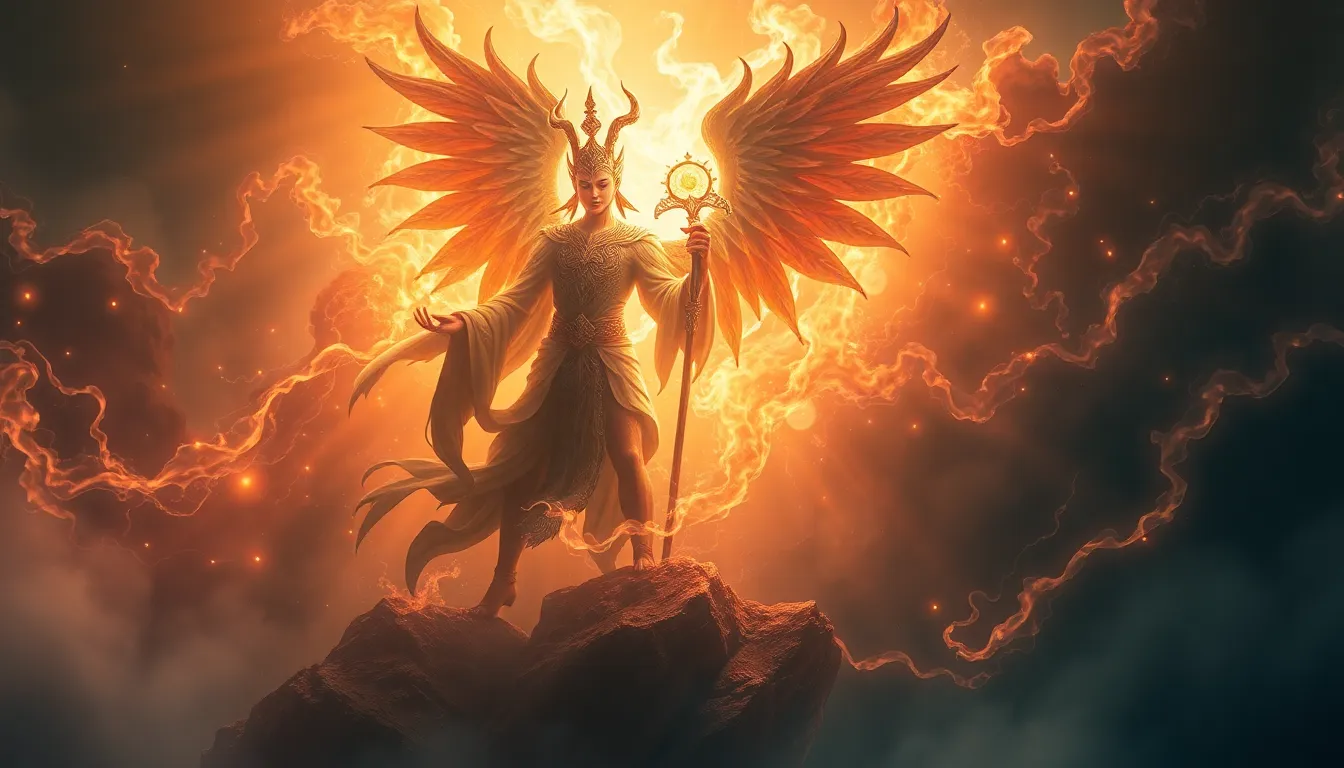The Spirit World of Thailand: Ancient Rituals and Ceremonies
Thailand's rich tapestry of culture is intricately woven with ancient myths and legends, shaping its rituals and ceremonies. The belief in a vibrant spirit world, interwoven with the human realm, permeates Thai society, influencing daily life, major events, and every aspect of existence. To understand the heart of Thailand, one must step into this mystical world of spirits, deities, and the profound connection to the unseen.
The Cosmic Dance: A Journey Through Thai Creation Myths
Thai mythology, like many other cultures, begins with a tale of creation. The universe, according to these ancient beliefs, arose from the cosmic dance of Brahma, the creator god. Brahma, through his divine acts, brought forth the elements, the natural world, and ultimately, humankind. In this creation myth, the world is viewed as a living organism, where every element, from the smallest insect to the tallest tree, plays a vital role. This interconnectedness underpins many Thai beliefs and influences their approach to rituals and ceremonies.
Spirits, Deities, and the Realm of the Supernatural
The Thai spiritual world is a vibrant and diverse landscape, populated by a vast pantheon of deities and spirits. These entities reside in various realms, ranging from the sacred mountains to the depths of the forest, and even within the human world itself. Among the most prominent deities are Brahma, Vishnu, and Shiva, the Hindu trinity, whose influence is deeply woven into Thai culture. However, alongside these major gods are numerous local deities, each with their unique powers and domains. These include the guardian spirits of temples, houses, and villages, as well as spirits associated with natural elements like water, trees, and mountains.
The Importance of Ritual in Thai Culture
Rituals play a pivotal role in Thai society, serving as bridges between the human and the supernatural realms. These ceremonies, often infused with intricate symbols and gestures, are believed to appease spirits, secure their blessings, and ensure harmony in the world. Some rituals focus on seeking protection against misfortune or illness, while others aim to ensure good harvests, prosperity, and a smooth journey through life's transitions. Through these symbolic actions, Thais demonstrate their respect for the unseen world and seek to maintain balance and well-being in their lives.
Ceremonies of Life and Death: From Birth to Rebirth
Life in Thailand is punctuated by significant ceremonies marking key milestones. Birth, a momentous occasion, is celebrated with rituals to welcome the newborn into the world and ensure their well-being. Coming-of-age ceremonies, often marked by elaborate rituals, signify the transition into adulthood and responsibilities. Marriage, a union celebrated with joy and tradition, involves seeking blessings from ancestors and deities for a harmonious and fulfilling life together. And finally, death, while a somber occasion, is viewed as a transition into the afterlife, with rituals centered around honoring the deceased, guiding their spirits on their journey, and ensuring their peaceful passage.
The Role of Temples and Monasteries in Ritual Practice
Temples and monasteries are not merely places of worship in Thai culture; they are the epicenters of spiritual life, vibrant hubs of ritual practice, and vital connections to the unseen world. These sacred spaces are often built on sites believed to be imbued with spiritual energy, further strengthening their connection to the realm of spirits and deities. Within these hallowed grounds, monks and nuns lead a life dedicated to spiritual practice, serving as intermediaries between the human world and the supernatural realm. They are entrusted with the knowledge and rituals necessary to appease spirits, secure blessings, and guide individuals through life’s transitions. Temples and monasteries are also the locations for many important rituals, from daily offerings to elaborate ceremonies celebrating life's important events. The presence of these sacred spaces shapes the landscape of Thai society, reminding people of the continuous presence of the spirit world.
The Power of Offerings: Connecting to the Divine
Offerings are a cornerstone of Thai rituals, serving as a vital link between the human world and the supernatural realm. These gifts, presented with reverence and sincerity, are believed to appease deities and spirits, securing their blessings for good fortune, health, and protection. The types of offerings vary, reflecting the nature of the deity or spirit being honored. Food offerings, such as fruit, flowers, and prepared dishes, are common, symbolizing nourishment and good wishes. Incense, with its fragrant smoke reaching towards the heavens, symbolizes purification and reverence. Candles, their flames flickering with life, represent enlightenment and the dispelling of darkness. These symbolic offerings serve a dual purpose: to show respect for the unseen world and to establish a connection with the divine. Through these acts of generosity, individuals seek to cultivate a harmonious relationship with the spirits and deities who influence their lives.
Traditional Thai Festivals: Celebrating the Sacred
Thai festivals are more than just celebrations; they are deeply rooted in mythology and offer a unique glimpse into the interconnectedness of the human world and the supernatural realm. Festivals like Songkran, the Thai New Year, are infused with ancient beliefs about water, purification, and renewal. The joyful splashing of water symbolizes cleansing and the washing away of misfortune, while the ritual bathing of Buddha images signifies respect and the seeking of blessings. Loy Krathong, the festival of lights, is a celebration of gratitude to the goddess of water, Phra Mae Khongkha, with the floating of krathongs (small boats adorned with flowers, candles, and incense) symbolizing the letting go of past burdens and the seeking of good fortune. And finally, Phi Ta Khon, the "Ghost Festival," is a vibrant and colorful celebration of spirits, with participants donning elaborate masks and costumes, dancing and parading through the streets, embodying the playful and sometimes mischievous nature of the unseen world. These festivals, deeply woven into the fabric of Thai culture, offer a tangible link to the ancient beliefs and traditions that shape the nation's spirit.
Modern Adaptations and Transformations
Despite the enduring influence of ancient traditions, Thai mythology and rituals are not static entities. Over time, these practices have evolved, adapting to changing social structures, technological advancements, and modern influences. While core beliefs remain strong, their interpretation and expression have shifted in response to the evolving world. For example, traditional practices like spirit house construction, once common in rural communities, have seen adaptations in urban environments, reflecting the changing social landscape. Similarly, festivals like Songkran, while still retaining their ancient significance, have incorporated modern elements like music, dance, and technology, reflecting the dynamism of contemporary culture. The ongoing evolution of Thai mythology and rituals speaks to their resilience and adaptability, demonstrating how ancient traditions can find contemporary expression while remaining true to their core principles.
FAQ
What are some of the most common Thai spirits?
Some common Thai spirits include:
- Phii Prai: Spirits of people who have died violently or prematurely.
- Phii Klook: Spirits associated with places and objects, often benevolent but sometimes mischievous.
- Phii Tai: Spirits of ancestors.
- Phii Nang Mai: Forest spirits, often associated with trees.
- Phii Baan: House spirits, believed to protect the home.
What is the significance of offerings in Thai rituals?
Offerings play a vital role in Thai rituals, serving as a way to show respect, appease spirits, and secure blessings. The types of offerings vary depending on the spirit being honored, and they are often symbolic, representing nourishment, purification, or enlightenment.
How are temples and monasteries involved in Thai rituals?
Temples and monasteries are considered sacred spaces in Thai culture, serving as centers of religious practice and the performance of rituals. Monks and nuns act as intermediaries between the human and the supernatural world, conducting ceremonies and providing guidance on spiritual matters.
How have Thai mythology and rituals adapted to modern times?
While core beliefs endure, Thai mythology and rituals have evolved in response to changing social structures, technological advancements, and modern influences. Traditional practices have seen adaptations in urban environments, and festivals have incorporated modern elements while retaining their ancient significance.
What is the importance of rituals in Thai culture?
Rituals are crucial to maintaining harmony between the human world and the supernatural realm in Thai culture. They offer protection, seek blessings from deities and spirits, and ensure a smooth journey through life's transitions.



